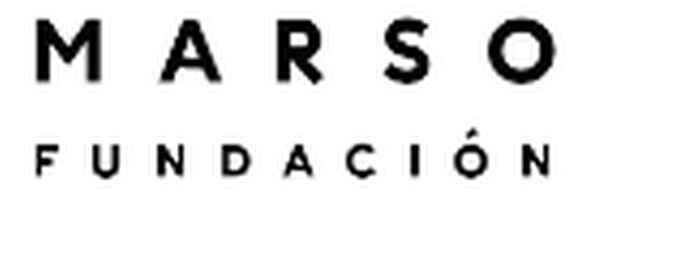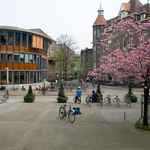Book presentation | “Hélio Oiticica. Parangolé: Between Revolt and Poetry”
- Date
- 24 October 2023
- Time
- 17:00 -20:00
- Location
- BG 3
- Room
- VOX-POP
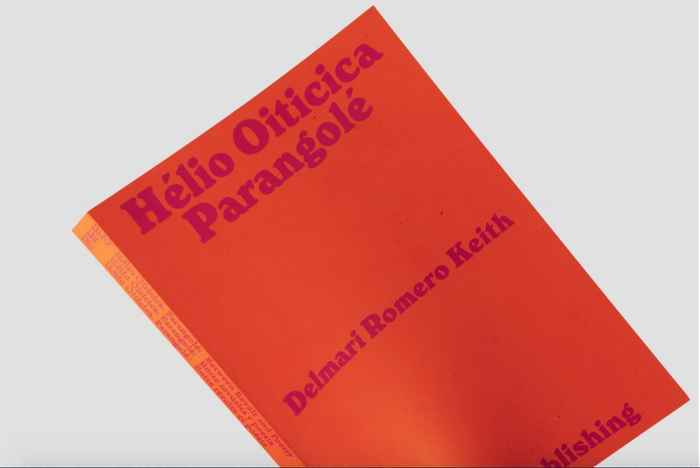
Helio Oiticica's Parangolés
Helio Oiticica's Parangolés are supra-sensorial installations, such as Núcleos (ceiling-hung geometric panels that create gradual chromatic experiences) and Propositions or Penetrables (labyrinth-like architectural environments made of sand and semi-permeable cabins). In the 1960s and 1970s, his works revived fragments of imagination inspired by ancestral rituals, Brazilian favelas, and the exuberance of carnivals.
This research validates the power of art as a poetic vehicle for social critique, showing how Oiticica created a canon outside the European tradition. The Parangolés encompass dance, music, and poetry, through which they reflect the rich tapestry of human emotions and experiences. In a panel discussion, the authors will enter a conversation about the “pluriverse” that Oiticica showcases through his installations. This event invites everyone to see our world as full of other worlds, specifically by foregrounding the role of indigenous art in questioning the relationship between the center and periphery, between Europe and Latin America.
This event has been organized in collaboration with the UvA Humanities Ventures Lab.
Programme
- Panel discussion on Eurocentric and peripheral conceptualisms with Delmari Romero Keith (co-author), Marc Pottier (co-author) and Sofía Mariscal
- Presentation of Hélio Oiticica. Parangolé: Between Revolt and Poetry
- Book signing by authors Delmari Romero Keith and Marc Pottier
- Closing drinks
Contributors

Delmari Romero Keith (co-author)
Delmari Romero Keith is an art historian with a master’s degree in contemporary Latin American art from the Universidad Nacional Autónoma de México (2011). She studied at Occidental College, California, and has a BA degree from the Universidad Iberoamericana, Mexico City (1982). A postgraduate degree in curatorial studies in the framework of the Venice biennale (2017) . She has worked as curator of various national and international exhibtions in The Modern Art Museum, Museo Nacional de Arte ( MUNAL), Museo Tamayo and The Palace of Fine Arts in Mexico. She is currently the cofounder and Director of Flux/Lab, a curatorial initiative of Latin American art with a unique vision of multicultural expression and a high political consciousness. She is the author of various publications and articles, including “El tiempo de la interioridad” (Instituto Nacional de Bellas Artes / Museo del Palacio de Bellas Artes, Mexico City, 2018); “Leonora, une somnambule dans la lumiére,” in Leonora Carrington. La mariée du vent (Gallimard, 2008); “The Avant-Garde Artists of the 20th Century” (Pérez Simón Collection, 2008); “Tiempos de Ruptura Juan Martín y sus artistas” (Landucci, 2001); “Antonio Souza, Vanguardia de una Epoca” (Equilibrista, 1992); and “Historia y Testimonios, Galería de Arte Mexicano” (Gam, 1986). She creates cultural programs for television; reviews exhibitions in various magazines, newspapers, and exhibition catalogues; and has worked in fundraising and financial management for art projects.
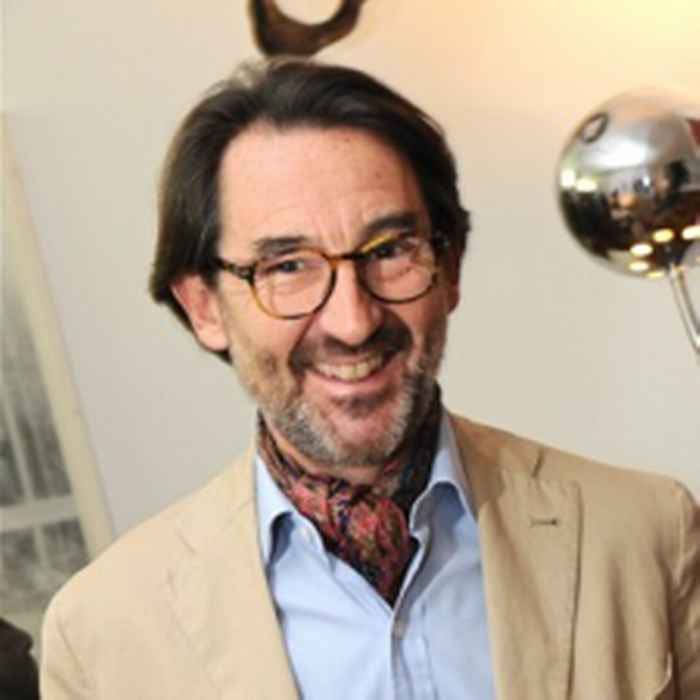
Marc Pottier (co-author)
Trained as an auctioneer in Paris (Etude Briest – now Artcurial), Marc Pottier joined Urban, a Japanese art collection based both in Nagoya, Tokyo, New York and Paris. He subsequently spent six years in New York as an independent curator organizing exhibitions in the USA, Europe and Brazil. He joined the French Ministry of Foreign Affairs as a Cultural Attaché in Rio de Janeiro and then in Lisbon where he organized and curated exhibitions and events such as Picasso’s ceramics or « Luzboa », the first Biennale of the Art of Light. In 2007, he started his own company developing international curatorship with particular dedication to community culture and gardens.
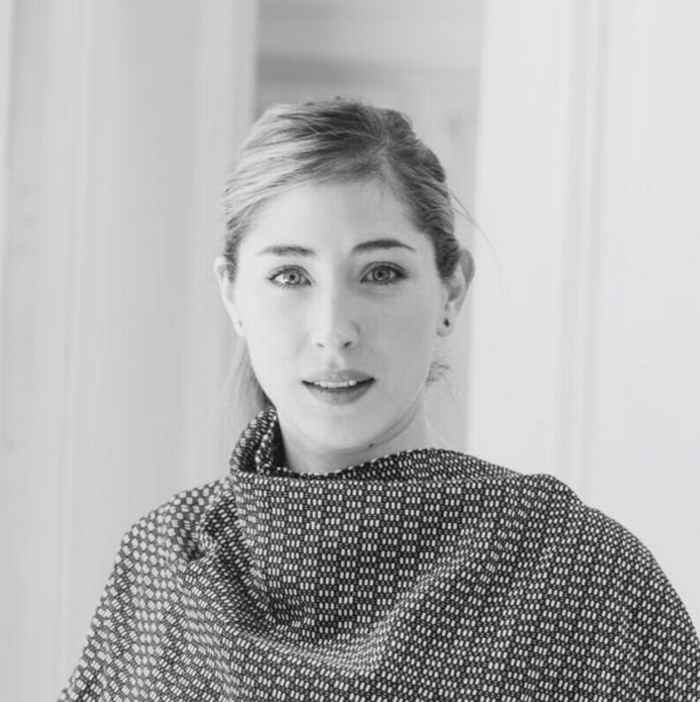
Sofía Mariscal (panelist)
Sofia Mariscal (Chihuahua, Mexico 1984) is a contemporary art curator and cultural manager who lives and works between Madrid, Mexico City and the northern Sierra Madre of Chihuahua State. She founded MARSO, a non-profit organization that focuses on projects which bring different disciplines of contemporary art and culture closer to social work; in 2020 Sofia launched a programme called Tierra Norte, aiming to build bridges between innovation and cultural legacy preservation of the first nations in northern Mexico, with special attention to women collective empowerment, environmental sustainability, commercial circularity, and fair trade. The Tierra Norte project is done through participatory methodologies, alternative and interdisciplinary forms of research and knowledge composition.
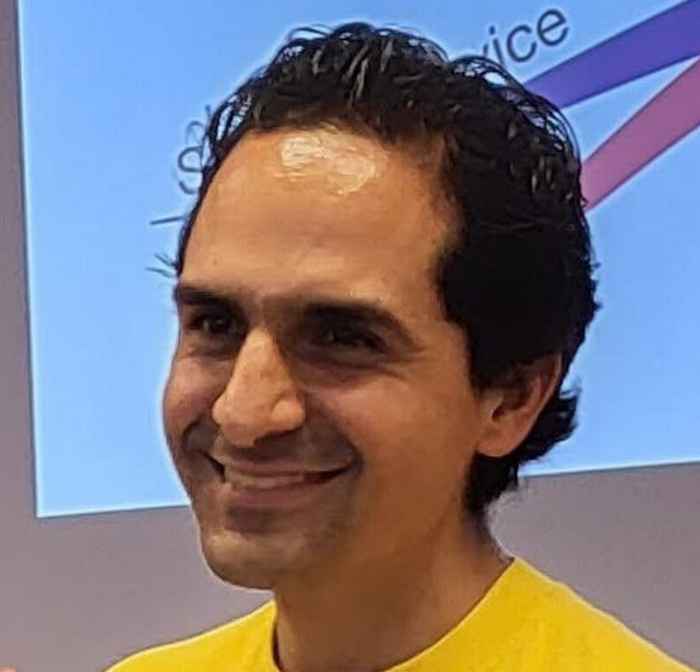
Rodrigo Martínez Romero (space holder)
Rodrigo Martinez Romero (Mexico City, 1986) is co-founder of the Spiritual Politics Lab (SPlab), a startup member of the Humanities Venture Lab at the University of Amsterdam. The SPLab is the reseach and innovation branch of the the School of Conscious Politics (SCP) foundation, where he collaborates with trainers, artists, spiritual leaders, and researchers to test, innovate and experiment with heart-driven political leadership education curriculums. The SCP provides learning spaces to support changemakers to resignify their relationship with politics and the political world, embark on learning journeys to actualize their spiritual and political potential, and unleash sacred activist projects to bring social healing to diverse local territories. What do we need politics to see and do from a space of love, hope, and evolution? As a lover of questions, Rodrigo aspires to keep growing as a spiritual-driven, social justice, artistic entrepreneur. What is success? Currently expressing the art of being guided not by ego or market demands but by the wisdom of Self to creatively restore balance and health to our social systems. Rodrigo holds a BA in International Relations from El Colegio de Mexico and an MSc in Leadership and Change Management from the Free University of Amsterdam.

